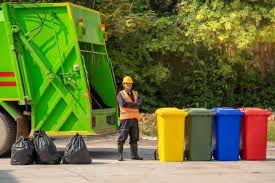Medical waste disposal is a critical aspect of healthcare management, aimed at protecting public health and the environment. Proper handling and disposal of medical waste ensure that potentially hazardous materials do not pose risks to healthcare workers, patients, and the community. In this article, we will explore best practices in medical waste disposal services to help healthcare facilities maintain the highest standards of safety and compliance.
Understanding Medical Waste
Medical waste includes a wide range of materials generated in healthcare settings, such as hospitals, clinics, dental offices, and laboratories. This waste can be classified into several categories:
- Infectious Waste: Items contaminated with blood or bodily fluids, such as bandages, gloves, and surgical instruments.
- Pathological Waste: Human tissues, organs, and body parts.
- Sharps Waste: Needles, syringes, and other sharp objects that can cause injury.
- Pharmaceutical Waste: Expired or unused medications and vaccines.
- Chemical Waste: Discarded chemicals used in laboratories and medical treatments.
- Radioactive Waste: Waste containing radioactive materials used in certain diagnostic and treatment procedures.
Proper segregation and identification of these waste types are the first steps in ensuring safe disposal.
Segregation and Labeling
Effective medical waste disposal services begin with proper segregation and labeling. Healthcare facilities should implement clear guidelines for separating different types of waste at the point of generation. Color-coded containers and clear labeling help in identifying and handling waste correctly. For example, red containers can be used for infectious waste, yellow for sharps, and black for pharmaceutical waste.
Segregation reduces the risk of cross-contamination and ensures that each type of waste is treated appropriately. Staff training on segregation and labeling protocols is crucial to maintaining compliance and safety.
Safe Handling and Storage
Safe handling and storage of medical waste are essential to prevent accidents and exposure to hazardous materials. Healthcare workers should use personal protective equipment (PPE) such as gloves, masks, and gowns when handling medical waste. Additionally, sharps should be disposed of in puncture-resistant containers to avoid needlestick injuries.
Waste storage areas should be secure and well-ventilated to minimize risks. It is important to store medical waste in designated areas away from public access until it is collected for disposal. Regular inspection and maintenance of storage facilities help ensure that they meet safety standards.
Transportation and Disposal
Transportation of medical waste must comply with regulatory requirements to prevent spills and contamination during transit. Specialized vehicles and trained personnel are necessary for the safe transport of medical waste to treatment facilities.
Several methods are used for the disposal of medical waste, including:
- Incineration: Burning waste at high temperatures to destroy pathogens and reduce waste volume.
- Autoclaving: Using steam and pressure to sterilize waste, making it safe for disposal in landfills.
- Chemical Treatment: Applying chemicals to disinfect waste before disposal.
- Microwave Treatment: Using microwave energy to disinfect waste.
Each method has its advantages and limitations, and the choice depends on the type of waste and local regulations. Ensuring that medical waste disposal services use environmentally friendly and compliant methods is crucial for public health and environmental protection.
Compliance and Training
Compliance with local, state, and federal regulations is essential for effective medical waste disposal. Healthcare facilities must stay updated on regulatory changes and ensure that their waste management practices meet legal requirements. Regular audits and inspections help identify areas for improvement and maintain high standards.
Training healthcare staff on proper waste disposal practices is vital. Regular training sessions and refresher courses ensure that all personnel are knowledgeable about current protocols and safety measures. Involving employees in the development of waste management policies can also enhance compliance and safety.
Medical waste disposal services play a vital role in safeguarding public health and the environment. By adhering to best practices in segregation, handling, storage, transportation, and disposal, healthcare facilities can minimize risks and ensure safety. Continuous compliance with regulations and ongoing staff training are essential components of an effective medical waste management program. By prioritizing safety and environmental responsibility, healthcare facilities can contribute to a healthier and safer community.





Comments